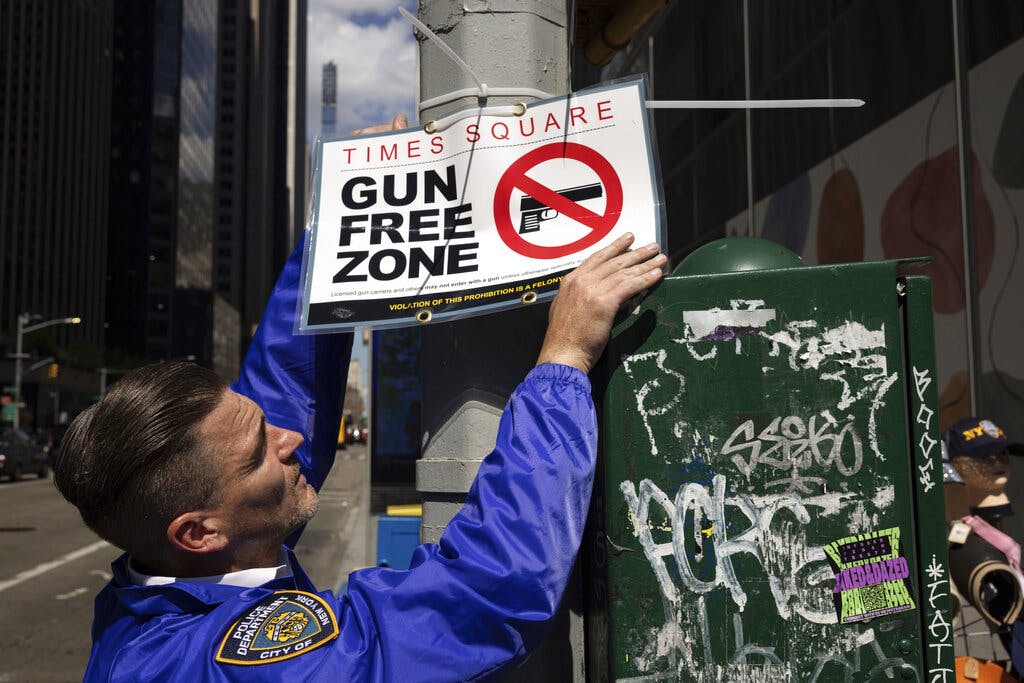
The GOP Will Beat History in the Midterms by Sticking to Its America-First Values
By LAWRENCE KUDLOW
|In an appeal to the Supreme Court, gun rights advocates write that a circuit court ruling has ‘the effect of indefinitely suspending the protections afforded New Yorkers by the Second Amendment.’

Already have a subscription? Sign in to continue reading

By LAWRENCE KUDLOW
|
By MATTHEW RICE
|
$0.01/day for 60 days
Cancel anytime
By continuing you agree to our Privacy Policy and Terms of Service.
By LUKE FUNK
|